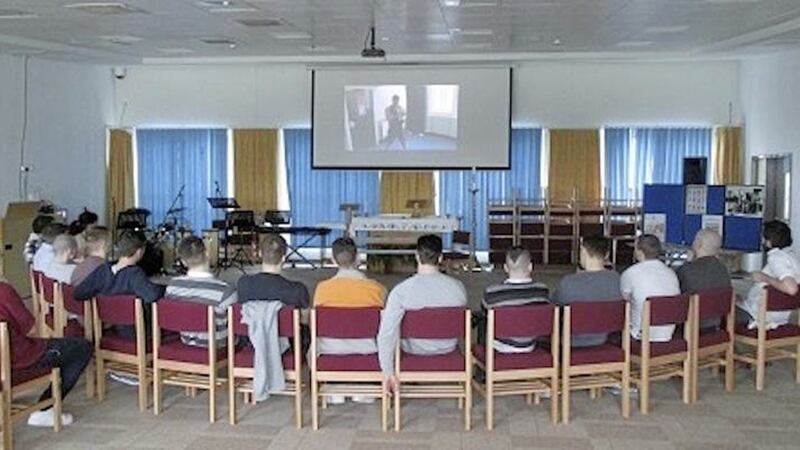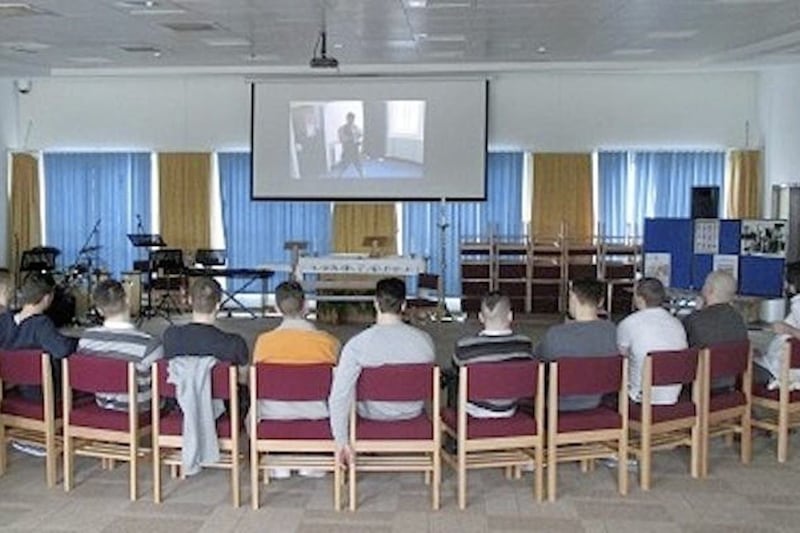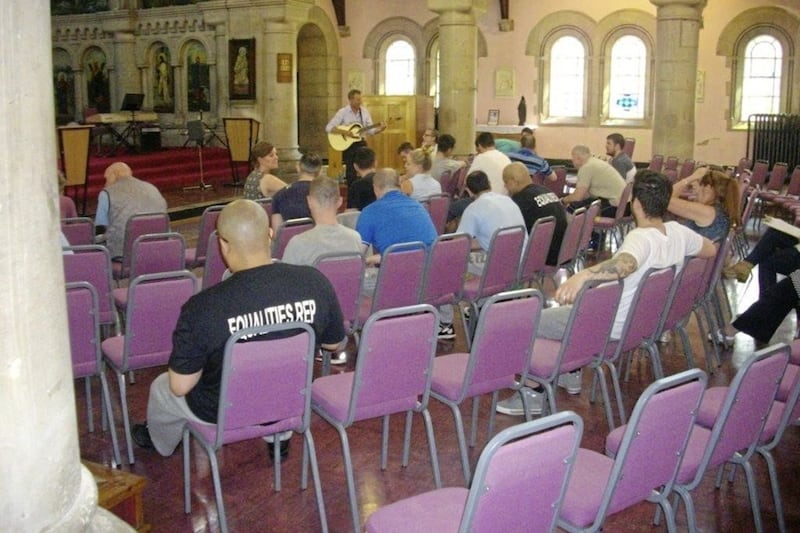"IS there an Indian chaplaincy?" a skeletal young man laughed as he shouted across the netting of the second-floor landing.
I smiled back as I told Breda, who hadn't heard; she was chatting to some Irishmen crowded round the door of a cell.
I am not sure if even the staff in Pentonville would know if there was an Indian, Hindu, Sikh or Jain chaplaincy.
Such is the pressure on this London inner-city Victorian prison and all prisons in England and Wales that keeping a lid on things is all anyone could reasonably expect of staff given their resources.
The officers in Pentonville and in the other 116 prisons do know that there is an Irish Chaplaincy - this month marks the sixtieth anniversary of its founding.
Breda Power, the London caseworker for the Irish Chaplaincy, was talking with a man who had received a letter through the door the day before telling him that he had HIV.
Sitting in the cell, her eyes were moving hurriedly from his face to the notepad, furiously scribbling details of his treatment and what he needed.
Breda fired questions in purest Cockney with few emollient words; her actions over the years spoke volumes.
The other men were giving them some space but were keen not to let Breda's visit pass them by.
There's a strange kind of courtesy shown on these visits - there are no prison officers around except at the far end of the wing near the gate - and besides, the support from the Chaplaincy is a lifeline which no prisoner wants to risk.
It was a morning of running from landing to landing, and wing to wing, but as Breda is an authorised keyholder, we could move quickly without an escort covering about 40 prisoners, all with their own story.
There were men that were missed but they would be tracked down in a fortnight's time after Breda visited the eight other London prisons.
Breda's work is part of the Irish Council for Prisoners Overseas, ICPO, one of the projects of the Irish Chaplaincy.
There are two others: the Seniors Project, for vulnerable older people; and the Traveller Equality Project.
When I began working there, I thought the term 'chaplaincy' was a bit of a misnomer for what my colleagues spent their days doing - that cleaning a recluse's flat in Tottenham, protesting at the eviction of a Traveller site or the analysis of educational attainment of prisoners is not 'chaplaincy' work.
Yet I soon learned that I had confused the devotional with the religious.
The ethos of the Irish Chaplaincy, which it manifested from its first days in the 1950s, is to walk with people.
The organisation literally did that. Chaplaincy staff went to building sites, walked along the under-construction motorways, set-up hostels, found employment, listened to people's problems and simply did what they could.
The Chaplaincy wasn't perfect then - and perhaps it still isn't - but it lives up, not to an ideal, but to an idea of being 'a Church of people' rather than 'a Church for people'.
The highest praise one could give the messy, dedicated, chaotic and professional work of the Irish Chaplaincy over its 60 years is that it is an aspect of the Church as Pope Francis would wish it to be: "A Church which is bruised, hurting and dirty because it has been out on the streets, rather than a Church which is unhealthy from being confined and from clinging to its own security.
"I do not want a Church concerned with being at the centre and which then ends by being caught up in a web of obsessions and procedures."
Yet aside from its significance for those of us who are Catholics, there are good reasons for Irish people of other faiths and of no faith to celebrate the Irish Chaplaincy.
The Irish Chaplaincy is a model of a diverse community. Its prisoner project, ICPO, serves all prisoners who request help simply because they are people worthy of dignity.
Unsurprisingly, loyalist, Protestant, atheist and 'New Irish', as well as many individuals - often other foreign nationals - with no options are part of the ICPO's daily caseload.
Likewise, I've smiled to myself overhearing my friend Stafford - a devout Catholic with a mellifluous Waterford accent - on the phone in the Seniors Project office organising a Methodist funeral or attempting to track down Protestant family members in County Antrim.
Significantly, the Chaplaincy continues to make a positive contribution to wider British society.
Its most recent research on prison reform has played a central role in parliamentary debates leading to the introduction this year of monitoring of Gypsy, Romany and Irish Traveller children held in secure training centres.
As the Irish Chaplaincy marks its 60th anniversary, we should celebrate and maybe learn from its ethos, learn from its example of solidarity of being out on the streets - a little bruised, hurting and dirty.
:: Dr Conn Mac Gabhann worked with the Irish Chaplaincy from 2010-2016.
:: The Irish Chaplaincy will celebrate 60 years on Sunday September 24 with Mass at 12.30pm and a reception at the Sacred Heart Church, Kilburn in London.
:: More about the work of the Irish Chaplaincy can be read at www.irishchaplaincy.org.uk
ENDS




